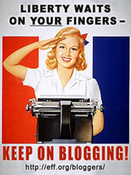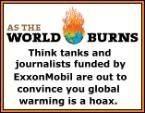On Iran, Bush faces questions of what he knew when
WASHINGTON, Dec 4 (Reuters) - President George W. Bush faced questions on Tuesday about whether he knew of intelligence that Iran had ended its nuclear arms program when he warned in October that Tehran could trigger World War Three.
"Can't you be accused of hyping this threat?" Bush was asked at a news conference a day after his administration released a new National Intelligence Estimate concluding that Iran halted its nuclear weapons program in 2003.
"I was made aware of the NIE last week," Bush replied.
But it was his next remark that drew attention from Democrats, the news media and intelligence experts: "In August, I think it was (U.S. intelligence chief) Mike McConnell came in and said, 'We have some new information.' He didn't tell me what the information was."
Increasingly strident U.S. rhetoric over Iran's nuclear program reached a peak on Oct. 17 when Bush warned that a nuclear-armed Iran could lead to World War Three.
A day later, Vice President Dick Cheney announced his own warning of "serious consequences" for Iran if it refused to abandon its nuclear activities.
The comments stirred fears of a possible U.S. military confrontation with Iran and helped send world oil prices soaring toward the $100 a barrel mark.
On Tuesday, some former intelligence officers said Bush and other top White House officials were probably briefed about the intelligence findings long before the NIE was published.
"I can't imagine that McConnell ... would tell the president about this and not tell him what the information actually said," remarked Flynt Leverett, a former member of Bush's National Security Council.
"I think they certainly played fast and loose with the facts," he said in an interview with CNN.
READ THE ARTICLE
ALSO SEE: Kucinich questions Bush's mental health over Iran
"Can't you be accused of hyping this threat?" Bush was asked at a news conference a day after his administration released a new National Intelligence Estimate concluding that Iran halted its nuclear weapons program in 2003.
"I was made aware of the NIE last week," Bush replied.
But it was his next remark that drew attention from Democrats, the news media and intelligence experts: "In August, I think it was (U.S. intelligence chief) Mike McConnell came in and said, 'We have some new information.' He didn't tell me what the information was."
Increasingly strident U.S. rhetoric over Iran's nuclear program reached a peak on Oct. 17 when Bush warned that a nuclear-armed Iran could lead to World War Three.
A day later, Vice President Dick Cheney announced his own warning of "serious consequences" for Iran if it refused to abandon its nuclear activities.
The comments stirred fears of a possible U.S. military confrontation with Iran and helped send world oil prices soaring toward the $100 a barrel mark.
On Tuesday, some former intelligence officers said Bush and other top White House officials were probably briefed about the intelligence findings long before the NIE was published.
"I can't imagine that McConnell ... would tell the president about this and not tell him what the information actually said," remarked Flynt Leverett, a former member of Bush's National Security Council.
"I think they certainly played fast and loose with the facts," he said in an interview with CNN.
READ THE ARTICLE
ALSO SEE: Kucinich questions Bush's mental health over Iran
Labels: Bush, Bush administration, Cheney, Iran, nuclear













0 Comments:
Post a Comment
<< Home